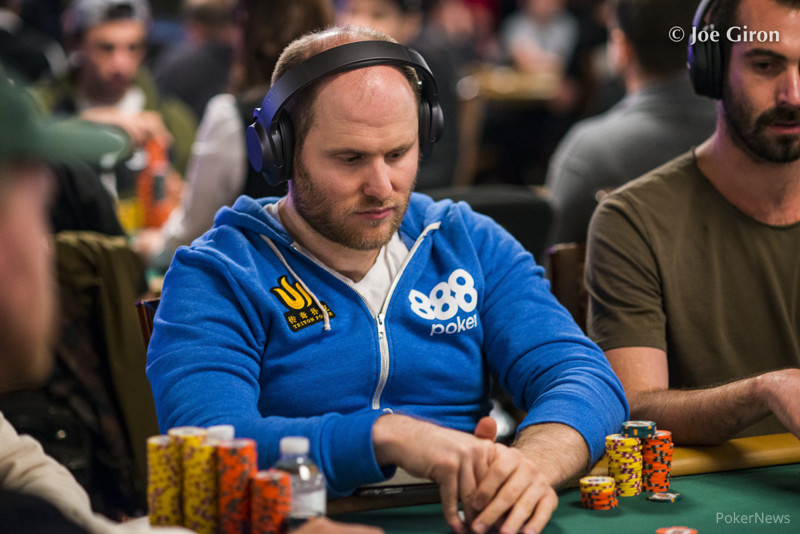In Limit Hold ’em, you can oNo-Limity raise the amount of the big blind and most cardrooms and oNo-Limitine poker rooms will cap the betting at 3 raises. In No-Limit Hold ’em, the oNo-Limity betting rule is that the minimum be at least the size of the big blind. You can bet your whole stack if you want to. In 1961 Joe Jennings Bookmakers was born, setting up shop in the beautiful Essex town of Harlow. Since that time we have gradually expanded our operation to offer the highest quality sports betting service to our customers across 15 locations throughout the South of England, Jersey and the Isle of Man. Here is a list of the best non Gamstop betting sites in the UK: Fortune Clock Sportsbook (Best for Gamstop Gambling) BetNow EU (Best for Betting with No GamStop) BetOnline AG (Best for Risk-Free Bonus) 24 Monaco Bookmaker (Non GamStop Betting & Streaming) PH Sportsbook (Ideal for Live Bets) BetSwagger (Top Choice for Minimum Deposits).
Some people don’t want to bet $100, $500, or even $1,000 per bet.
No way – that’s chump change.
They want to bet more. They want to bet $5,000, $10,000 or $25,000 – or more – on any given market or bet.
But the challenge is that few sportsbooks have betting limits that high. Most have limits that peak somewhere between $1,000 and $2,500 per bet. So your first task is to find a betting site that has high limits. But you don’t want to sign upto the first sportsbook you find, either. You want to join the BEST sites for high stakes sports betting.
| Rank | DE Betting Site | Exclusive Bonus | Get Started | |
|---|---|---|---|---|
| #1 | Betway Sports | Up To€150 | Visit Site | Visit Site |
| #2 | 22Bet Sports | 100% Up To€122 | Visit Site | Visit Site |
| #3 | Spin Sports | 100% Up To€200 | Visit Site | Visit Site |
| #4 | 10Bet Sports | 100% Up To€50 | Visit Site | Visit Site |
| #5 | Guts Sports | 100% Up To€50 | Visit Site | Visit Site |
Think about it…if you want to wager $10,000 on one bet, how large is your bankroll? Using standard bankroll guidelines, it’s going to be anywhere from $500,000 to $1,000,000.
Are you going to trust that much money to just anyone? Heck no! You’re only going to trust the best betting sites with that kind of money – otherwise, you’re a dummy.
That’s why we recommend only the above sportsbooks for high stakes betting. We’ve vetted them for you. Your money’s in good hands when you bet with them.
To get started, simply click the “Visit Now” button.
Now, if you’re new to online betting, we recommend reading the review for each sportsbook before you sign up and make a deposit. And that’s because each sportsbook willhave different banking methods, banking limits, payout limits, betting markets, and more – all things you want to make sure you’re okay with before you send them a 6- or 7-figure bank wire.
There are many reasons behind sportsbooks enforcing betting limits on, or even banning certain customers. Many people try to get an edge via unscrupulous means – either by using the arbitrage method, exploiting bonus offers, or outright cheating. As a result, their privileges will be curtailed or discontinued.
And good riddance to those players, if we’re being honest, as they simply give the sports betting industry a bad name.
But another scourge sullying the reputation of sports betting involves the books banning players whose only “crime” is winning consistently.
Unfortunately, many major sportsbooks today – both online and in brick and mortar locations – use their risk management policies as an excuse to box professional handicappers out. When a sportsbook like William Hill U.S. identifies bettors who excel at their craft – targeting soft wagering markets, shopping for “middle” opportunities, and betting the maximum – they have no problem targeting those players for betting limits or bans.
That’s exactly what happened to Rob Gorodetsky, a Las Vegas-based sports betting pro who was profiled by USA Today last year. Gorodetsky provided the newspaper with financial statements from William Hill U.S. which showed he placed $26 million in wagers throughout 2017 – clearing a profit of $245,000 in the process.
As his winning ways continued, however, Gorodetsky claims that William Hill U.S. and other Sin City sportsbook operators began lowering his maximum wager amounts to reduce their own risk:
“I would take my knowledge and my gut instinct and bet the best numbers. I just kept pounding them.(The casinos) started lowering my limits because the house has no idea who’s going to win in summer league. They don’t know anybody who’s playing.”– From: USAToday
Eventually, through a combination of mainstream media coverage and his own loose lips, Gorodetsky’s audacious ways caught up with him. A follow up from USA Today revealed that William Hill U.S. – the leading sportsbook operator in Nevada with over 100 venues statewide – had banned Gorodetsky from its books altogether.
And while the company declined to offer further comment, competitor MGM Resorts did go on record to address its own policy behind Gorodetsky’s ban:
Debra DeShong, a spokesperson for MGM Resorts, confirmed that Gorodetsky’s action was no longer accepted at the company’s network of sportsbooks:
“Like any business, we reserve the right to deny service to someone.We will not comment any further other than confirm the decision.”
– From: USAToday
All things considered, sports bettors in the know who have proven capable of beating the books are rightfully worried about limits and bans.
If you’re one of them and want to protect yourself from unfair oversight by the sportsbooks, take the following advice into account.
The conclusion of this post will focus on preventative measures bettors can take to keep their action off a bookmaker’s risk management radar screen. Using these tips, you should be able to avoid limitations on your action or full-fledged exclusions. And if the books do manage to punish your propensity for winning with limits or bans, the final section offers a few sneaky ways to get around sportsbook penalties.
Spread Your Action Across Multiple Books to Avoid Detection
The most common reason sharp bettors cite to explain why their account has been limited or banned is over-betting at a particular book.
Let’s say you have a strong grasp on the ongoing NFL season, with your picks winning and/or covering at a sizzling 70 percent clip. Obviously, you want to take full advantage of the situation, firing as much of your bankroll as possible to ensure the largest possible profit every Sunday.
Well, if you keep smashing the same sportsbook over and over again, it’s only a matter of time before the risk management team there starts tagging your account with a lower limit. Remember, sportsbooks aren’t exactly a public utility, they’re corporate-controlled business entities concerned with nothing but their bottom line. And while a quality book does have a way of embracing sharp bettors and making them feel welcome, even the best in the business won’t hesitate to hamper a consistent winner’s groove.
For this reason, it’s in your best interest to spread action out over a variety of sportsbooks. By doing so, you’ll ensure that a successful wager still pays out to its full potential without putting the entire financial burden on a single operator.
If you’re lucky enough to live in Las Vegas – the undisputed gambling capital of the world – the world is your oyster when it comes to sportsbook selection.
Just take a look below for a full list of Sin City sportsbook operators and their various venues along The Strip and beyond:
Independent Sportsbooks
- Westgate SuperBook
- South Point
- Treasure Island
- Wynn Las Vegas
- Encore Las Vegas
MGM Resorts International
- Aria
- Bellagio
- Circus Circus
- Excalibur
- Luxor
- Mandalay Bay
- MGM Grand
- Monte Carlo
- The Mirage
- New York-New York
Caesars Entertainment
Texas Holdem Betting Order
- Bally’s
- Caesars Palace
- Cromwell
- Flamingo
- Harrah’s
- The Linq
- Planet Hollywood
- Paris
- Rio
- Harrah’s Laughlin
- Harrah’s Reno
- Harrah’s Lake Tahoe
- Harvey’s Lake Tahoe
Station Casinos
- Red Rock Resort
- Green Valley Ranch
- Palace Station
- Santa Fe Station
- Texas Station
- Boulder Station
- Fiestas
CG Technology
- The Cosmopolitan
- Hard Rock
- M Resort
- The Palazzo
- Palms
- Silverton
- Tropicana
- The Venetian
Boyd Gaming
- Aliante
- Cannery
- Eastside Cannery
- Eldorado
- Gold Coast
- Jokers Wild
- The Orleans
- Sam’s Town
- Suncoast

William Hill U.S. Betting Kiosks
BOULDER CITY
- Hoover Dam Lodge
CARSON CITY
- Carson Nugget
- Max Casino
- Casino Fandango
- Gold Dust West
DAYTON
- Gold Ranch Casino
Poker Betting Guide
ELKO
- Red Lion Inn & Casino
- Gold Dust West
ELY
- Prospector Hotel & Casino
FALLON
- Fallon Nugget Casino
FERNLEY
- Silverado Casino
- Jackpot Crossing Casino
HENDERSON
- Casino Valle Verde
- Club Fortune Casino
- Emerald Island Casino
- Longhorn Casino
- Railroad Pass Hotel & Casino
- Skyline Casino
JACKPOT
- Cactus Pete’s Resort Casino
LAKE TAHOE
- Crystal Bay Casino
- MontBleu Resort
- Hyatt Grand Lodge Casino
- Hard Rock Hotel & Casino
LAS VEGAS
- Binion’s Gambling Hall & Hotel
- Casino Royale
- Downtown Grand Casino
- Ellis Island Casino
- Four Queens
- Hooters Casino
- Max Casino at the Westin
- Plaza Hotel & Casino
- Silver Sevens Hotel & Casino
- SLS Hotel and Casino
- The D
- Tuscany
- Golden Gate Hotel & Casino
- Alamo Casino
LAUGHLIN
- Avi Resort & Casino
- Colorado Belle Hotel & Casino
- Edgewater Hotel & Casino
LOVELOCK
- C Punch Inn & Casino
MESQUITE
- Eureka Casino
MINDEN
- O.D. Casino
NORTH LAS VEGAS
- Lucky Club
- Siegel Slots
- Silver Nugget
PAHRUMP
- Pahrump Nugget Casino
PRIMM
- Primm Valley Resort & Casino

RENO
- Boomtown
- Club Cal Neva
- Diamond’s Casino
- Gold Dust West
- Grand Sierra Resort
- Hobey’s
- Sands Regency
- Tamarack Junction
- Siri’s Casino
- Nugget Casino Resort
SPARKS
- JJ’s Sports & Spirits
- Rail City Casino
- Alamo Casino
SPRING CREEK
- Scoreboard Casino
WELLS
- Alamo Casino
WENDOVER
- Wendover Nugget
WINNEMUCCA
- Winnemucca Inn
- Pete’s Gambling Hall
- Winger’s Roadhouse
YERINGTON
- Pioneer Crossing Casino
That’s quite a long list of options available to bettors based in Nevada, encompassing dozens of venues supervised by six main operator groups. And when you throw in independent books like the Westgate SuperBook – only the largest sportsbook facility on the planet – and the South Point, home to the legendary oddsmaker Jimmy Vaccaro, there’s no shortage of choices in the Silver State.
To take advantage of this thriving market, sharp bettors typically divide their total wager into “slices” that can be safely bet without attracting attention.
Imagine yourself geared up and ready to fire $10,000 at tonight’s huge Ultimate Fighting Championship (UFC) main event. You could take all the dough to a single book and lay it down, but when you do, the manager on site will likely be brought in to validate the hefty wager. And if your side manages to deliver a big winner, that same manager will waste no time tagging your name and Player’s Club number with sharp status.
Next time you enter that same book hoping to plunk down five figures on a juicy side, don’t be surprised if the manager informs you that your limit has been decreased to $2,500 per ticket.
To avoid that fate, why not take the original $10,000 bet and divvy it up between several sportsbooks?
So long as you’re using different operators (MGM Resorts, Boyd Gaming, etc.), and not several books within the same operator network, your decision to go big and bold won’t draw any undue attention. In this case, you might take $1,500 to Caesars Palace, drop another $2,500 at the South Point, and finish things off by firing $1,000 each with William Hill U.S., the Westgate SuperBook, MGM Resorts, CG Technology, and Station Casinos.
In the end, you’ll still have the same $10,000 on the line, but your smaller bet sizes spread over seven operators won’t make the sportsbook managers bat an eye. Whereas a single five-figure ticket might out you as an informed bettor or pro handicapper, a much smaller bet simply makes you look like any other well-heeled tourist taking their shot. Plenty of rich visitors to Vegas splash around with four-figure bets when they’re feeling froggy, but few reach the five-figure plateau or higher.
Of course, this strategy does increase the level of legwork you’ll put in to collect on winning wagers – but that’s a small price to pay for avoiding the dreaded sharp label. In fact, many of the wiseguys plying their trade in Sin City employ ticker runners to avoid that very hassle. For a reasonable rate, these pro bettors have underlings drive to and fro cashing in winners, rather than hoof it across the casino floor several times per day.
Use Runners or Ditch the Player’s Club Card to Conceal Your Identity

Speaking of runners, one of the most effective ways to hide your winning ways from the sportsbook is to don a disguise of sorts.
No, I’m not talking about a fake mustache and funny glasses… more like an entirely different identity.
One dirty little secret within the world of sports bettors is that the biggest sharps out there seldom place their wagers in person – they use runners instead. A runner is somebody employed by a big-time sports bettor to physically place bets and cash winning tickets. These guys and gals are classic middlemen, taking care of the busywork so their bosses can be free to study stats, devise systems, and choose sides.
The reasons for using a runner are many. Maybe you live in a state where sports betting is still illegal. Only six states have launched legal wagering since the U.S. Supreme Court repealed the federal ban back in May, so the odds of that are quite good. Or perhaps you’ve been banned from the book and can’t show your face.
In any event, runners are trusted to handle large amounts of cash, place wagers according to exact specifications, and most importantly, return any and all winnings to their rightful owner. As you might suspect, these unwritten contracts can and do go south, and I can count several well-known sports betting personalities who have been burned by runners over the years.
But when you can link up with a faithful runner who takes the job seriously, the relationship can be mutually beneficial to say the least. The best runners earn a steady income approaching $100,000 per year, and while the job is rather demanding in terms of logistics, spending all day in the sportsbook isn’t exactly a trip to the salt mines.
Earlier this year, Doug Kezirian of ESPN Chalk published a brief profile on the hidden world of sportsbook runners which managed to capture the essential spirit of the job:
“Not all big bettors live in states with legalized sports betting. Only a small portion fly to Vegas to place their bets. Those who can’t make the trek hire middlemen, or ‘runners,’ as they are known in the industry in order to place those bets.Runners need to be dependable. They need to understand the mechanics of betting. And most crucial of all, they reside in Nevada (or the five other legalized states).That is what bettors need most – someone who can legally bet with a credible establishment.”
-From: ESPN
If you find yourself suffering through a bet limit or ban at your favorite book, employing a runner to place wagers on your behalf can be a prudent business decision – especially if you live in the same state where they’ll be operating.
As the aforementioned profile points out, using a runner to place bets for you across state lines is a violation of federal law:
Poker Betting Tips
“Make no mistake, this is illegal.It violates the Federal Wire Act (as bets cannot be made across state lines). Thus, the runners are technically betting for themselves, and their “business partner” from another state is merely advising them.However, the actual terms of their unwritten agreement stipulate the runner either gets a salary or a cut of the profits.”
-From: ESPN
With that in mind, utilizing a runner to expedite your sports betting should only be considered if you’re a resident of the state where the wagering will take place.
Another way to disguise your betting activity from the sportsbook requires you to leave that trusty Player’s Club card at home.
Casinos and sportsbooks use Player’s Club cards as a promotional tool, with every wager you make adding up to produce points, comps, and other rewards. But in order to do so, the venue must track all of your gambling activity – and that’s where the Player’s Club card comes into play.

When you make a bet, the attendant at the window will ask for your Player’s Club card. In most cases, you’ll be happy to hand it over and accrue points on your action.
If you’re dealing with a betting limit or ban, however, showing your Player’s Club card is a surefire way to draw attention. Instead, simply say you’re only in town for a few days and don’t have an account. Unless your bet is rather large, the attendant will typically accept the tourist explanation at face value and print your ticket with no further questions asked.
Beware though, as this strategy should only be used sparingly, and never at the same venue twice. Going to the well too often with this one is an easy way for banned players to find themselves staring down a surly security guard.
Opt for Online Sportsbooks Offering the Highest Limits
Thanks to the all-encompassing power of the online age, sports betting enthusiasts have more options at their disposal than ever before.
Even if you live in one of the 44 states where legal sportsbooks aren’t available, online betting platforms operating from offshore provide an easily accessible alternative. All you need is an internet connection, a debit/credit card (or Bitcoin) to fund your bankroll – and a willingness to do business with companies that are technically illegal under American law.
Leaving aside the legality issue – only the operations side is banned by federal code, and actual bettors have never been targeted for prosecution or punishment – online sportsbooks are a convenient way to stay in action no matter where you happen to live.
On the other hand, because online bookmakers aren’t beholden to strict state regulations, they can often be far more aggressive with their betting limits and account bans.
For that reason, I recommend exercising caution when it comes to the usual warning signs displayed by sharp bettors. Avoid targeting soft markets with extremely large wagers, never exploit the bonus offers online books lavish customers with, and spread your action across several unique operators. That way, the books will have no reason to scrutinize your account activity and assign limitations.
To help you learn the lay of the land when it comes to online bet shops, check out the list below to see which internet-based sportsbooks offer the highest base wager limits:
| Online Sportsbook | Maximum Bet |
|---|---|
| Bet365 | $50,000* |
| Pinnacle sports | $40,000 |
| Ladbrokes | $10,000 |
| William Hill U.K. | $10,000 |
| Paddy Power | $10,000 |
| 5 Dimes | $5,000** |
| Bookmaker.eu | $5,000 |
| Bovada | $2,000 |

- *Winnings are limited to $1 million per wager
- **Players can make the same $5,000 maximum bet multiple times
These limits can vary wildly, even on the same platform, so be sure to read the site’s terms and conditions carefully before placing any wagers. For example, most online sportsbooks use higher limits for basic bets like point spreads and moneylines, while reducing the limits on riskier wagers like proposition plays.
After all, if a book is willing to offer astronomical odds like 5,000 to 1 – a price which Ladbrokes had to pay out in 2016 after perennial underdog Leicester City won the Premier League title –they have every right to cap their risk at a reasonable amount.
By signing up for accounts with every major online sportsbook, and maintaining a sufficient bankroll across each one, you can place sizable bets on obscure markets without the operators taking notice.
On a final note, be sure to avoid the temptation to cash out quickly after a big win. Online sportsbooks hate nothing more than “hit and run” artists who scoop a large score and are never heard from again. When you want to enjoy the fruits of your labor, use a sensible strategy of siphoning off chunks from each online bankroll you own, rather than draining one out entirely.
That will leave the operator under the impression that you’re in for the long haul, even as you’re diligently squirreling your winnings away for a rainy day.
Conclusion
Sportsbooks are a multibillion-dollar business for one reason and one reason only – bettors tend to lose more than they win. When a book realizes that you’re the proverbial outlier, a player capable of winning consistently, you’re no longer a customer in their eyes – you’re a cancer.
That assessment may sound harsh, but the truth usually hurts. Modern operators aren’t old-time oddsmakers who appreciate the ancient give and pull between bettors and the books. These companies are corporate monoliths which serve shareholders above all else, so they aren’t shy about forcing sharps to jump through every conceivable hoop.
Betting limits and bans are par for the course when you’re a successful sports bettor. And now that you know the score, you’ll be much better equipped to a) keep yourself off the risk management radar screen and b) get those bets down despite the books’ attempt to block your way.